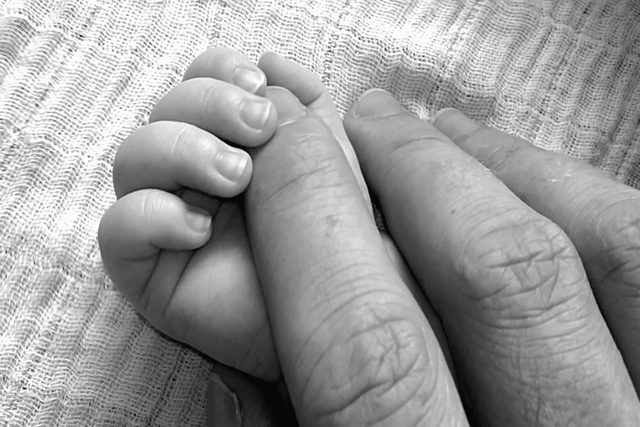A father is selling homemade banana cakes to raise P1.6 million for his son’s needed liver transplant after the latter was diagnosed with biliary atresia, a rare and fatal disease among infants that causes liver damage.
Jenny Sumalpong, founder of support group Liver Transplant Operation Babies Philippines, Inc., shared that “Baby Aki” or Aquiro Jazz needs to be operated on immediately for him to live longer.
Antonio Detablan decided to sell banana cakes costing P120 each to reach the projected amount for the liver transplant.
According to a report, Baby Aki is currently taking regular multivitamins as medication while he waits for the operation.
He has been diagnosed with biliary atresia in October 2018.
Doctors have advised his parents that Baby Aki needed to be operated on before turning one year old to ensure that he survives. Otherwise, he wouldn’t be able to reach two years of age.
Jabee Imano Galindes, his mother, has provided the necessary details for willing donators to help fund Baby Aki’s much-needed operation.
As of this writing, the family has only raised about P120,000 in total.
Funds can be transferred to the BDO account of Aquiro Jazz Detablan with the number 005910516001 or through SMART Padala with the number 5577-5195-0625-8103. His parents can also be contacted through (0947)5362919.
A look at Baby Aki’s disease
Biliary atresia is a chronic and progressive disease among infants in which bile ducts — “drainage ‘pipes‘ that carry bile from the liver to the gallbladder” — are scarred and blocked.
Bile helps in the digestion of food by breaking down fats, absorbing fat-soluble vitamins and eliminating waste products.
In normal bodily functions, bile is supposed to flow from the liver, gallbladder and then into the small intestines.
If it doesn’t reach the intestines, it builds up in the liver, causing damage that leads to scarring, loss of liver tissue and function and cirrhosis.
Its symptoms appear two to eight weeks after the infant’s birth, where the skin and the whites of the eyes adopt a yellowish tone. Stools may also be pale yellow, gray or even white in color while the urine is dark.
Furthermore, the infant will also experience weight loss and irritability.
There is no determined cause of biliary atresia but experts note it might occur if the bile ducts weren’t able to form properly during the period when the baby was still in the womb.
There is also the possibility that the bile ducts might be damaged by the body’s own immune system as a response to a viral infection that was acquired after birth.
Biliary atresia can only be treated with a surgery called the Kasai procedure and through a liver transplant.




